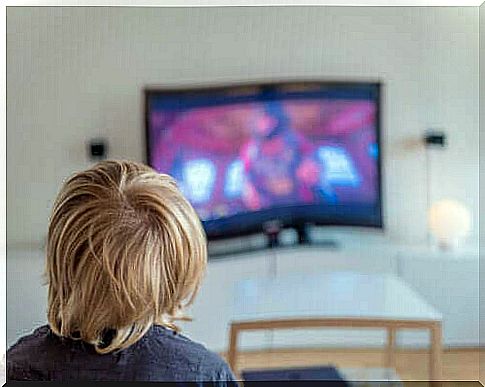The Negative Effects Of Screen Time For Children

The amount of time children spend looking at screens is worrying. Children do not seem to get tired of watching television or playing on an iPad. This obsession with gadgets is a cause for concern, but the immediate concern is the adverse effects that screen time has on children and their vision.
Children use devices to play games, chat, use the Internet or watch movies. This activity is, as a rule, so interesting to them that they do not distract their attention from the screen.
Effects of too much screen time for children
They are also not aware of things such as posture, distance to the screen and the brightness of the screen, which can adversely affect their vision and health. Too much screen time creates discomfort. Problems such as dry eyes and eye irritation can manifest and they may have difficulty concentrating for some time after spending a long time looking at a screen.
It can also cause pain in the neck and back if they spend too much time in the same position. If you have a hard time dealing with the time in front of the screen, you can probably imagine what can happen to your children’s eyes. Digital devices have become an irreplaceable part of our lives. You may not want them to disappear completely because it is impossible. However, you can minimize their impact on your children.

More consequences and effects of too much screen time for children
The first step is to understand what you are facing. Children spend an average of about 8 hours a day looking at electronic screens. The use of gadgets among children increases with age. Although experts are not sure of this fact yet, children who spend too much time in front of a screen have an increased risk of long-term vision problems.
In addition to television and video games, most devices have come on the market over the last two decades. Although the immediate effects on children can be seen, the long-term effects are still unknown.
Children who spend too much time with these devices are likely to develop temporary myopia. Fortunately, this effect is short-lived, and the eyes recover after a few minutes when switching to another activity.
The effect of spending a lot of time looking at a screen is not limited to the eyes. In addition to symptoms such as dry eyes, a burning sensation, double vision and blurred vision, people also complain of headaches and problems with posture, such as pain in the back and neck.
Computersyn
Doctors now call this set of symptoms “computer vision syndrome” or CVS (computer vision syndrome). When people look at electronic screens, they blink less. On average, a person blinks about 15 times a minute.
Due to the great attention that the use of gadgets and electronic screens requires, this rate can drop to less than 5 times per minute. It is a natural mechanism to blink. It keeps the eyes moist, lubricated and clean.
A lower blink rate can cause the eyes to become dry and irritated. Its severity varies according to the type of activity and the degree of dedication. Therefore, video games create more tension in the eyes because one constantly has to look at the screen and respond to what is happening.
Desktops and wall-mounted televisions can make things worse because they will make you look up. This causes you to open your eyes more and overexpose the surface of your eyes to evaporate tears.
Electronic screens can create bright and contrasting images, and these images can vary in a split second. In addition, they reflect the brightness of ambient light sources, such as lamps and windows. Therefore, your eyes have to, on a regular basis, respond to changing light intensities.

Pay attention to blue light and exhausted eyes due to gadgets
When you look at a screen that is too dark or light in relation to the surrounding environment, it also makes your eyes tense. Your eyes need to adapt as you switch from your screen to your surroundings. The frequent dilation and narrowing of your pupils makes your eyes exhausted.
Most modern devices have an LED screen because they produce brighter images and use less energy. However, the amount of blue light that these screens emit is worrying.
LED screens emit much more blue light than LCD screens. Although research is limited, there are many opticians who suspect that blue light can cause irreparable damage to the retina.
This may increase the risk of macular degeneration and cataracts. The macula is the central part of the retina and this area is essential for good vision. Macular degeneration can make everyday activities, such as reading and driving, impossible.
With age, the lenses in the eyes begin to turn yellow. For adults, this means a limited natural defense against blue light. However, children are also vulnerable.
Blue light can also interfere with the biological clock and affect sleep. Protecting children from the adverse effects of spending time in front of a screen is crucial. If your kids are complaining of a burning sensation in their eyes, then it might be a good idea to research how much time they spend in front of a screen.









